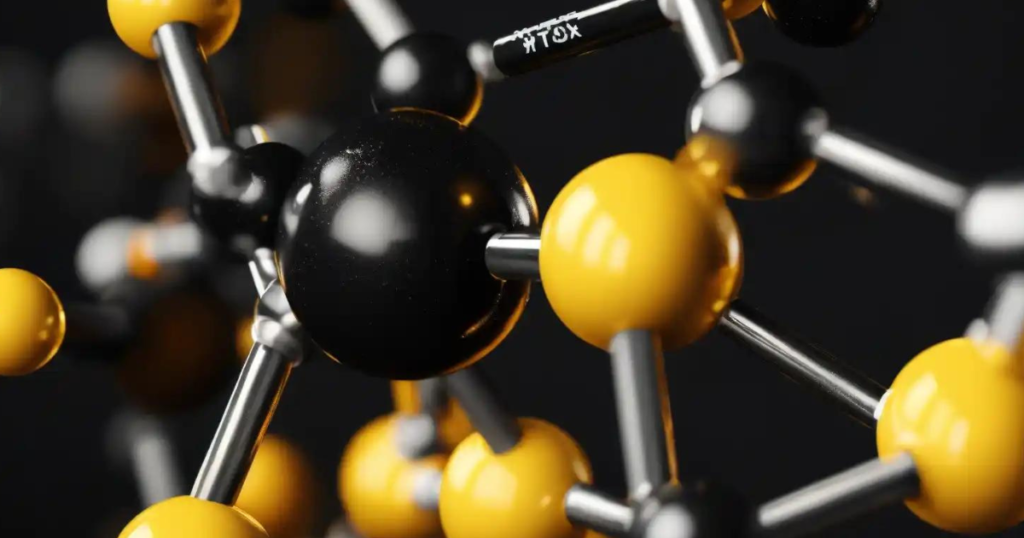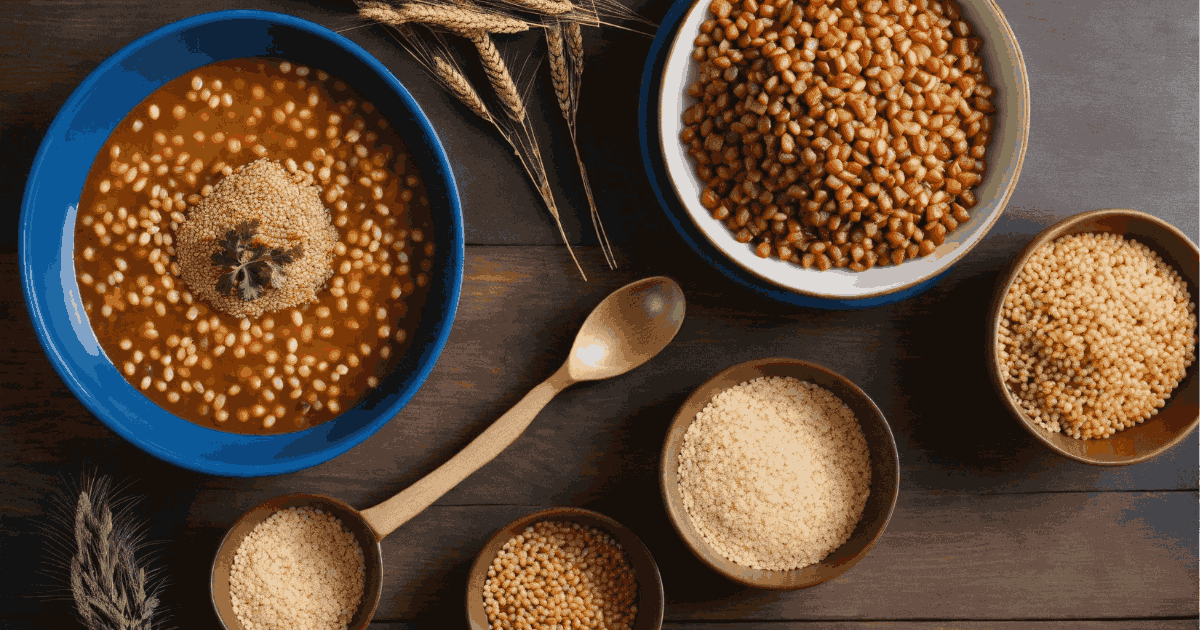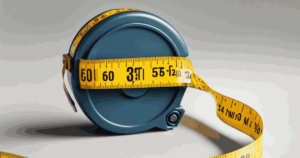for the role of protein in weight loss Along with carbohydrates and fats, protein is one of the macronutrients required by the human body for overall good health. It contains several amino acids, serving as basic building blocks, responsible in nearly all biological functions. In its absence, it cannot undertake the construction or repair of tissues, manufacturing hormones and enzymes, or maintaining good immune status by one’s body. Role of Protein in Weight Loss
Think of protein simply as the raw material which provides your body with what it needs to fix or build basically anything, from muscles to hair and skin. It’s absolutely necessary for good health and also plays a very important role in weight loss, gaining muscles, and in how your body generally functions. Role of Protein in Weight Loss

The structure of proteins consists of large, complex molecules of amino acids linked together in a specific sequence. There are 20 different amino acids, many of which the human body can synthesize by itself; these are called non-essential amino acids. However, nine of the twenty amino acids, referred to as essential amino acids, need to be acquired through food since the human body cannot synthesize them independently. Role of Protein in Weight Loss
These amino acids combine in many combinations to form thousands of different proteins, each with a unique function in the body. Think of the amino acids as letters of the alphabet that are strung together in many ways to create thousands of words (proteins). Every cell in your body contains protein, and it is necessary for both the structure and function of cells.
Why Is Protein Important?-Role of Protein in Weight Loss
Protein is probably one of the most important nutrients to the body for growth and healing. Among its primary functions in the body are:
- Anabolism-Muscle Growth and Repair: It helps your muscles and tissues repair, especially after an injury or hard exercise. For the athlete or one desiring to gain a great deal of muscle, it is critical for them to have a high enough intake of protein.
- Enzyme and Hormone Production: Proteins are useful in the production of enzymes and hormones, regulating many body functions, starting from metabolic rates to growth and sexual function.
- Immune Function: Protein has a necessary function in producing antibodies that are beneficial for your body in fighting infections. Role of Protein in Weight Loss
- Energy Source: Although the body gets its required energy supplies from carbohydrates and fats, proteins can also be used for energy if it needs-most especially when you consume fewer calories than the amount the body requires.
Types of Protein: Complete vs. Incomplete
Speaking to proteins, a differentiation must be made between complete and incomplete proteins.
- Complete Proteins: These are proteins that contain all nine essential amino acids in sufficient amounts. Examples of complete proteins include animal products, such as meats, eggs, dairy products, and fish. For vegetarians, examples would be quinoa, chia seeds, and soy. Role of Protein in Weight Loss
- Incomplete proteins are those that do not contain one or more of the essential amino acids. This limits most plant-based foods, such as grains, legumes, and nuts, as incomplete proteins. However, it is fairly easy to get all the essential amino acids for any vegetarians or vegans eating a variety of plant-based foods because different plant foods contain different patterns of amino acid levels. Role of Protein in Weight Loss
what are the Sources of Protein?
Herein lie two main sources of proteins, viz. animal and plant-based.
- Animal-Based Proteins: These include meats such as chicken, beef, pork, and fish, besides dairy products like milk, cheese, and yogurt. These are generally higher quality because of the complete amino acid profile
- Plant-based proteins come in many forms: beans, lentils, chickpeas, quinoa, nuts, seeds, and soy products like tofu or tempeh. Most of these sources are incomplete proteins; however, they also can provide appropriate nutrition to the body when combined appropriately or consumed in adequate amounts.
- Addition to Protein: These come in quite handy for individuals who are unable to consume enough protein through their diet. Whey protein, casein, and plant-based protein powders are generally available for convenience and are especially popular among athletes or those on high-protein diets for either weight loss or muscle gain. Role of Protein in Weight Loss
How Much Protein Do You Need?
This is, of course, rough and generalized, and varies upon age, sex, and level of activity or specific goals for health. Some include general recommendations of about 0.8 grams of protein per kilogram of body weight for the average adult. As an example, a person weighing 70 kg (around 154 pounds) should aim for roughly 56 grams of protein daily.
But if one wants to indulge in losing weight, gaining more muscles, or indulging in regular hard physical work-out, then the protein intake might be higher and may lie within the range of 1.2 to 2 grams per kilogram of body weight.
It’s a big part of your healthy diet for keeping your muscles strong, immune system on point, and overall health in the best possible place. Whether it is to build muscle, shed fat, or just maintain good health, getting a proper amount of protein from various sources-animal-based, plant-based, or supplements can bring much potential and can be really helpful in just one day for maintaining general health and well-being.
So, the next time you think about getting meals, just think of proteins as the foundation of your plate! Role of Protein in Weight Loss
Protein and Metabolism: The Impact on Fat Burning
While protein is an indispensable macronutrient when it comes to building and recovering muscles, it also plays a very important role in your metabolism and fat-burning process. Most of the time, when discussions about increasing metabolism and fat burning are thrown, protein often becomes the for Role of Protein in Weight Loss focal point because of its distinctive characteristics, which have a direct influence on the way your body metabolizes energy and controls hunger. The focus in this section is on protein intake and how it improves metabolic processes; the correlation of muscle with fat-burning capabilities; and, lastly, how protein helps an individual feel full longer, and avoids overeating. Role of Protein in Weight Loss

Protein and Metabolic Rate
How Protein Consumption Boosts Metabolism
The term “metabolism” describes all of the chemical changes that take place within the body with the food ingredients being converted into energy. Energy is needed everywhere-from breathing and thinking to moving and digesting the food. Your metabolic rate is a measure of how fast your body goes through these processes. Role of Protein in Weight Loss No other nutrient affects the metabolic rate like protein does, and it does so through something called the thermic effect of food, or TEF.
TEF is the quantity of energy the body needs to assimilate, absorb, and process the nutritional components of food. The thermic effect of protein is far greater when compared to carbohydrates and fats. Whereas a rough estimate of digestion of protein may burn about 20-30% of its calories, carbohydrates use about 5-10%, and fats use about 0-3%. This means that out of every 100 calories of protein you eat, your body will burn about 20-30 to digest it.
This energy expenditure might be little, but over some time, this makes a big difference, especially along with regular exercises and calorie-controlled diets. Giving your body more protein in meals jacks up the metabolic rate. Since metabolism is faster, it means the body can burn more calories at rest and also while doing any kind of physical activities; hence, it becomes easier to shed fat and keep the weight off.
Protein within a Caloric Deficit
Many individuals, when the factor of weight loss comes in, tries to apply a caloric deficit wherein one is burning more calories than what is consumed. The problem therein lies in how the metabolic rate will inevitably slow down over time due to the body being put under different demands and cycles regarding food delivery.
You can avoid a portion of this metabolic slowdown by increasing your protein intake. Protein preserves lean muscle mass-which we’ll get into in a minute-and because muscle tissue burns more calories than fat, maintaining muscle during weight loss prevents your metabolism from crashing.
Muscle Mass and Metabolic Efficiency
How Preserving Muscle is Connected to Burning Fat
One of the main reasons protein is so crucial to weight loss is that it preserves lean muscle mass. When you lose weight, which especially happens in a calorie deficit condition, it is not just the fat lost; if you are careless, your muscle mass will shrink. The problem is that muscle plays a major role in determining how many calories your body burns daily. The more muscle one has, the higher the and for the Role of Protein in Weight Loss resting metabolic rate, and your body will burn more calories even when you are sitting still.

How Muscle Affects Metabolism
Muscle is metabolically active tissue, and it takes more energy to maintain muscle compared to fat. For instance, whereas each pound of muscle requires roughly 6-7 calories per day to maintain it, a pound of fat only needs about 2-3 calories. While this may not sound like much of a difference on a per-pound basis, it starts to add up when you think about the total amount of muscle mass within your body altogether. Role of Protein in Weight Loss
Basically, it means that the more muscle mass you retain or even build up through strength training and ample intake of protein, the more calories you burn in a day. In other words, the bigger the muscle bulk, the finer tuned the machine your body will be in burning fat. Your muscles are even burning calories while at rest, thus making it easier in the long term for the fat loss to become more sustainable and controllable. Role of Protein in Weight Loss
Protein for body muscles building and repair
Every time you resist or do strength training, your muscles tear. Technically, the process requires the repair of tiny tears in the muscles. Protein or its amino acids is absolutely important for this repair process. The body takes amino acids and simply rebuilds muscle fibers, thus increasing their strength and resistance. This process of muscle repair and growth-so-called muscle hypertrophy-adds not only to your muscle mass but also has a great effect on fat loss through improvement in metabolic efficiency. Role of Protein in Weight Loss
If the intake of protein is too low on a calorie deficit, it can lead to muscle breakdown or catabolism. A decrease in lean body mass reduces metabolism, which makes it difficult to burn fat. Consuming a greater amount of protein, mainly around workouts, enhances the recovery and growth of muscles and maintains a higher metabolic rate. This results in reduced loss of lean tissue when one intends to decrease body weight. Role of Protein in Weight Loss
Protein and Satiety
The major challenges with any journey of weight loss often revolve around controlling hunger and avoiding overeating. That is where protein comes in-it has a powerfully magic effect on satiety. Satiation simply refers to a feeling of fullness and satisfaction after eating; it helps you control food intake, allowing you to avoid unnecessary snacking or overeating. Role of Protein in Weight Loss
Protein, by far and large, is more satiating compared to carbohydrates and fats. Meals high in protein increase levels of the appetite-regulating hormones GLP-1, PYY, and cholecystokinin, at the same time lowering levels of ghrelin, the hunger hormone. When the levels of ghrelin are low, the brain knows it is full, and this is going to reduce your urge to eat anymore. Role of Protein in Weight Loss
Role of Protein in Reducing Cravings
The satiating effect of protein further extends to a reduction in cravings, particularly for those high-calorie, sweet foods that seem to undo all your best work at weight loss. People consuming higher amounts of protein report fewer food cravings and are much more likely to meet their calorie goals. This is because protein acts to delay the release of glucose into the bloodstream, preventing spikes and subsequent crashes in blood sugar that commonly lead to sudden pangs of hunger and cravings for quick-energy foods. for more about Role of Protein in Weight Loss
For example, after consuming a meal high in carbohydrates but low in protein, your blood sugar will increase very rapidly, hence giving you an energy boost. It is usually followed by spiking of sugar in the blood, only to see an immediate drop, hence it leaves you hungry after a very short period following the taking of the meal. On the contrary, a high-protein meal provides sustained energy release and keeps you full for longer, therefore limiting the tendency of reaching out for unhealthy snacks between meals. for more about Role of Protein in Weight Loss
Best Times to Consume Protein for Optimal Fat Loss
Consuming enough protein is important when it comes to fat loss, and much of it comes down to the times and distribution of intake. Consuming protein helps build and maintain lean muscle mass, enhances metabolic rate, and helps in satiety. However, how and at what time a person takes protein during a day dictates how effective it will be, especially in relation to fat loss. Timing your intake optimally for fat loss-the spreading out of meals, pre- and post-workout advantages, and why that high-protein breakfast is so important-is what we will be covering in this article. Role of Protein in Weight Loss
Protein Timing and Meal Distribution
Importance of Spreading Protein Intake Throughout the Day
One mistake many people make when trying to lose weight is to load most, if not all, of their daily protein into one or two big meals; usually dinner. While this is good for adequate total protein intake, Role of Protein in Weight Loss symmetrical distribution has a greater advantage throughout the day, especially when it comes to fat loss and muscle preservation.
The body research indicates can use only so much protein at any one time effectively for muscle repair and growth; this has been estimated at 20-30 grams per meal. If you have too much in one sitting, excess protein isn’t utilized quite as well, especially if you are not giving your body several opportunities throughout the day to be digested and used.

While this may not make much of a difference, spreading your intake of protein throughout the course of a day-balancing it between meals and snacks-provides a consistent flow of amino acids to the muscles for repair and maintenance. This factor is important when one is trying to lose weight because the more lean muscle mass you have, Role of Protein in Weight Loss the higher your resting metabolic rate is, enabling you to burn off more calories, even at rest. Role of Protein in Weight Loss
Protein and Muscle Synthesis
Each time you consume protein, you’re essentially providing your body with the building blocks of muscle repair and building-known as MPS, short for muscle protein synthesis. The more frequent consumption of smaller, consistent amounts of protein throughout the day tends to stimulate MPS more frequently, which can then make it easier to retain and build muscle during times of calorie deficit. In that case, this would help support fat loss while one is still able to retain a lean and toned physique at lower weights.
The practical ways of distribution could target 20-30 grams per meal and small snacks containing the protein. Using the same example, if one is taking 120 grams of protein in a day, spread it among four meals with about 30 grams of protein in each. A steady intake of protein in this manner helps in regulating one’s hunger levels and can enhance muscle preservation so that the body keeps working on fat loss.
Pre-and post-workout protein
How pre-and post-training protein can support your fat loss and muscle recovery?
The consistent adherence to exercise, more so resistance training, is a very important aspect in the quest for fat loss among any concerned individual. Taking proteins about the time of working out can significantly enhance your outcome of this course. Both pre-and post-training protein serve different purposes, but both are crucial regarding fat loss and muscle recovery. Role of Protein in Weight Loss
Pre-Workout Protein
Ingesting protein pre-exercise helps give your muscles the amino acids they will use to repair damage from a session of exercise. This is particularly important when in a fasted state or even after a few hours without food. Take in some form of protein pre-exercise, to reduce muscle breakdown, catabolism that occurs with exercise, which is important for maintaining muscle mass in a calorie deficit. Role of Protein in Weight Loss

Muscle mass is important for fat loss, as the higher your muscle mass, the higher your metabolism. A protein-rich pre-workout meal or snack also tends to contribute to better performance because of the sustained release of energy provided. Translated into better workouts, this means your ability to burn more calories will increase, your muscles will tone up, and you will have more energy during workouts. Role of Protein in Weight Loss This energy level should slowly rise throughout your exercises.
Good pre-workout protein options include:
- Greek yogurt with a light serving of fruit.
- Egg or eggs whites
- Try to consume 15-20 grams of protein within 30 minutes to an hour before your workout .
Protein After Gym
Your muscles are at a repairing stage post-workout, and this is when your body needs most of the protein to trigger the recovery process. Consuming protein after exercise can help encourage muscle protein synthesis, which then helps repair and build the muscles. More importantly, it is for those trying to lose fat but preserve the lean muscle-muscle recovery is what enables you to continue training effectively.
Post-workout protein aids in fat loss because the healing of muscles takes energy, thereby giving a boost to your metabolic rate. Additionally, your body is more efficient at absorbing proteins during this critical post-workout time, which makes it a perfect time to refuel and spur muscle repair. Role of Protein in Weight Loss
For maximum fat-burning effects, try to consume 20-30 grams of protein within 30-60 minutes following your workout. Some great post-workout protein options would be:
A smoothie prepared using whey or plant-based protein
Grilled chicken or turkey with vegetables
Greek yogurt with berries to give it an extra dose of protein in a shake
Since you can ingest a certain amount of protein before and after your exercise, you will be creating the ideal condition for your body to shed fat and preserve muscle mass. The pre-workout protein will safeguard your muscles, while the post-workout protein will speed up the recovery process. Role of Protein in Weight LossYou will have higher metabolism in the long run and burn more fat.
Breakfast Protein
So, if there is one meal that gets touted as the most important of the day, then breakfast just might top the list. When it comes to fat loss, this meal takes on a whole new level of importance. For most people, their days start with carb-heavy meals-cereal, toast, etc.-foods that cause huge blood sugar spikes followed by huge energy crashes. This leaves you feeling hungry and wanting sugary snacks shortly after eating.Role of Protein in Weight Loss
How a High-Protein Breakfast Affects Hunger and Satiety
One study that was followed in the research proved that a high-protein breakfast regulates one’s hormones responsible for hunger. It can increase peptide YY and glucagon-like peptide-1, which is termed the satiety hormone that helps an individual feel full, and at the same time lowers ghrelin-the so-called “hunger” hormone. This combination lends itself to a sensation of fullness for a longer period of time, thus helping an individual to be full until the next meal and decreasing the likelihood of overeating throughout the day.Role of Protein in Weight Loss
Putting this into action, a breakfast made from eggs, lean meats such as turkey, or even Greek yogurt can suppress appetite for several hours. However, a carb-loaded breakfast, like pancakes or a muffin, will leave one with a feeling of hunger shortly after eating.
Protein and Blood Sugar Control

That said, it’s also a good way to help regulate blood sugar levels, which are very important in craving regulation and energy. While carbohydrates are digested rather quickly, spiking blood sugar after intake, it takes longer to break down protein into a slow, steady release of glucose into the blood. Role of Protein in Weight Loss This puts a steady supply of energy in the body, prevents the mid-morning slump, and reduces temptation for snacking on unhealthier, sugary foods. Role of Protein in Weight Loss
Protein and Fat Burning Throughout the Day
Moreover, having a high amount of protein at the beginning of your day causes your body to be in a much better place to maintain fat burning throughout the day. Not only does protein raise your metabolism through the thermic effect of food-or TEF-which basically means that your body actually burns more calories digesting protein than it would with fats or carbs, but it also helps you maintain higher muscle mass. Greater muscle mass is important for keeping your metabolism high during weight loss. Role of Protein in Weight Loss
Good options for a high-protein breakfast include:
- Scrambled eggs or an omelet with vegetables.
- Greek yogurt topped with nuts and seeds.
- Cottage cheese with fruits.
- A protein shake made using whey or plant-based protein powder
Work your metabolism with 20-30 grams of protein at breakfast, setting the pace for the rest of the day.
Timing your intake of protein can seriously help with fat loss. The spreading out over the course of a day means that at any given moment in time, your body will always have some amino acids on hand for general maintenance and muscle preservation, in turn keeping your metabolism running smoothly. Adding a workout in provides a few more strategic opportunities to optimize fat burning: protecting muscles and helping your body recover; starting your day with a high-protein breakfast can help keep you satisfied and control hunger, stabilize blood sugar, and keep you full longer. Role of Protein in Weight Loss
By ensuring that you consume protein at the right times, you will be better equipped to meet your fat loss goals while preserving muscle mass. This will ensure effective weight loss and that you reach your goals in a very sustainable manner. Role of Protein in Weight Loss
Protein is one of the most highly regarded energizing macronutrients since it provides the help one needs with weight loss, maintenance of muscles, and health in general. When it comes to sustainable fat loss, protein isn’t a short-term tool; it’s a long-term ally capable of keeping you full and energetic while you reach your goals. A summary of the main benefits of protein, some practical suggestions to help anyone build a great high-protein diet, and why protein is important for achieving success with long-term weight loss Role of Protein in Weight Loss .
Summary of Protein’s Key Benefits
Reinforcing the Main Advantages of Protein for Fat Loss
Boosts Metabolism: Probably the most important reason protein is so effective at burning fat is that it revs up your metabolic rate. Because of the thermic effect of food, also known as TEF, your body needs more calories to process protein than it needs to process carbohydrates and fats. This increase in metabolism adds to a caloric deficit, which is what one needs for fat loss.
Lean Muscle Mass Preserved: Protein is of essence when it comes to preserving lean muscle, especially in a state of calorie deficit. In most cases, one doesn’t just Role of Protein in Weight Loss lose fat but also muscle when on weight loss. However, with enough intake of protein, you save the muscle tissue hence maintaining a higher metabolic rate. The more muscles you can retain, the higher your resting metabolic rate and hence the more calories you burn at rest.Role of Protein in Weight Loss
Reduces Appetite and Controls Cravings: Protein is the most satiating macronutrient; it gives you the feeling of being full for a longer period of time. The regulation of hunger hormones, including ghrelin, and increasing satiety hormones like PYY, protein helps in controlling appetite and further lowering the chances of overeating. Especially crucial when it concerns avoiding high-caloric snacking or remaining within the calorie limit. Role of Protein in Weight Loss
Supports Muscle Recovery: For those incorporating exercise into their weight loss, especially strength training, protein is vital to muscle repair and recovery. Consuming protein before and after workouts ensures that your muscles are fueled both for performance and in healing-which helps not only in fat loss but also in getting stronger and leaner.Role of Protein in Weight Loss
How to Build a Sustainable High-Protein Diet
Practical Tips for Adding More Protein to Your Everyday Life
Building a high-protein diet is not necessarily complicated or restrictive. Here are some practical tips that will easily help you include more protein in your daily meal:
Start the day with a protein-packed breakfast. Breakfast is an excellent time to have a greater amount of protein. Avoid carb-laden foods like cereals or toast, and instead consume high-protein foods such as eggs, Greek yogurt, or a protein smoothie. This can make you feel fuller longer through the morning until lunchtime, thus preventing mid-snacking at this time. Role of Protein in Weight Loss
Include Protein in Every Meal: Ensure lean protein intake at every meal. Good options include chicken, fish, turkey, eggs, tofu, beans, and lentils. Consuming evenly distributed proteins throughout the day can help maintain a stable metabolism and sustain muscle synthesis.
Snack smart: instead of reaching for chips or sugary snacks, snack with high-protein options such as cottage cheese, Greek yogurt, boiled eggs, or protein bars. Such snacks would not only keep you full longer but also keep you away from unnecessary eating.
Use Protein Supplements Wisely: If it is hard to get what you need from whole foods alone, consider incorporating a protein shake or bar into your routine. Whey or plant-based protein powders are a very convenient and effective method of boosting your intake of this important macronutrient, especially post-workout.
Pair Protein with Fiber: With satiety and digestion, protein and fiber are a match made in heaven. Mixing vegetables, legumes, and whole grains into your protein-based meals further extends satiety and really pumps up the nutrient value.
Meal Prep High-Protein Meals: Meal preparation is an easy way to ensure that one has healthy, high-protein meals throughout the week. Grilled chicken, tofu stir-fry, and turkey chili are quick, easy meals to prepare en masse and then store for later. Role of Protein in Weight Loss
Hydrate: Protein needs water for digestion and metabolism; be sure to drink plenty of water throughout the day to support your protein intake and overall health.
You can do this with minimal stress by making gradual changes in protein intake and other dietary adjustments in easy-to-manage steps. The important thing is to find some appealing sources of protein and to incorporate them into meals in a way that feels natural and maintainable.
Final Thoughts on Protein and Long-Term Weight Loss Success
Encouragement for the Readers to Prioritize Protein for Long-Lasting Results
While protein is so much more than a quick, short-term fat loss tool, it is rather more of a cornerstone for a healthy and sustainable lifestyle. By prioritizing protein in your diet, you’re capable of achieving that delicate balance between losing fat and preserving muscle and metabolism. This trifecta is important in long-term weight management for the reason that you are usually in a position where you lose weight without necessarily sacrificing your strength or energy. Role of Protein in Weight Loss
Moreover, protein can save you from a number of problems with many diets that are restrictive in nature: constant hunger, low energy, and muscle loss. On the contrary, a high-protein diet contributes to feelings of satiety, keeps your body strong, and makes the maintenance of a calorie deficit so much easier without feeling starved. Be it the need to shed just a few pounds or a totally different life change, increasing one’s intake of protein is a very functional and real approach toward success. Role of Protein in Weight Loss
In other words, protein is your fat loss friend. Protein increases your metabolism, helps maintain muscle mass, keeps hunger in check, and it aids your body in burning fat at an efficient rate. You set yourself up not just for short-term weight loss, but long-term health and fitness as well, once you make protein the staple of your diet. The protein should be front and center on your plate as you seek to enjoy real success with your weight loss program. Role of Protein in Weight Loss





Pingback: 5 Common Myths About Weight Loss